Loko’s head coach talks about how he got into basketball, about his work along Luka Dončić in Slovenian national team, and reveals his thought on how Loko can became the champions on VTB United League.
Mr. Sekulić’s interview in Russian you can read here.
We also have a transcript of the conversation in English – and here it is.
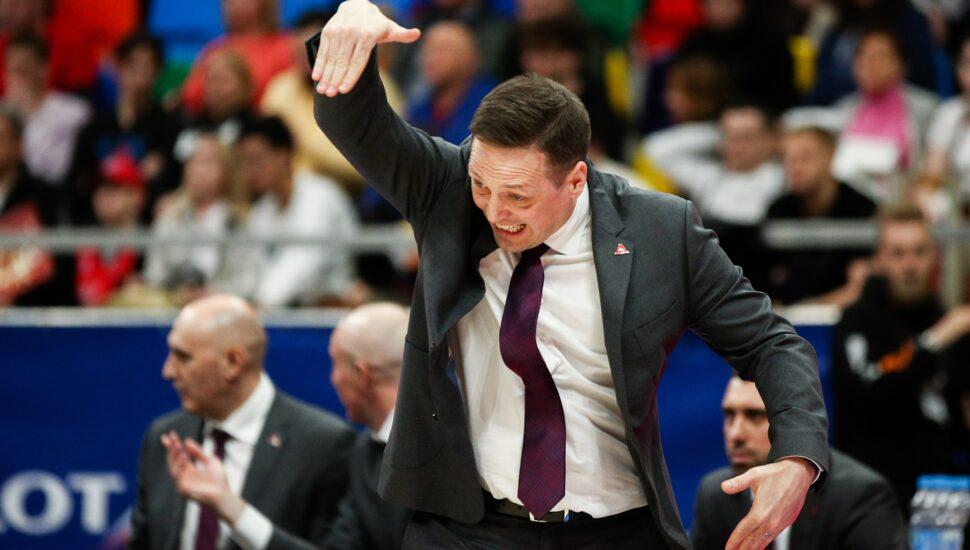
- – You are working in Russia for one and a half years. How can you characterize our country?
- – First thing, it’s a very big country. These travels are really challenging. You know, I come from a small country, Slovenia. And when we say that something is close, that means it's 10-15 kilometers away. But in Russia “close” means 200-300 kilometers away! So, this is the first impression I have about Russia. And there is another cliché about being cold in Russia, which is true. Only here in Krasnodar we have really nice weather.
- – How much did your expectations of Russia differ from reality?
- – Pretty much quite a lot. Because I've been to Russia maybe two or three occasions playing games. Never spent much time here before. So, we all have different perceptions of Russia if you're not living here. But when you see a country, it's totally different. For me it differs in a positive way. Very polite people that are ready to help. Me and my family really feel comfortable in Russia.
- – May you tell us about your childhood? What happened in Slovenia when Yugoslavia broke up?
- – I grew up in Ljubljana, the capital city of Slovenia. Most of my youth I spent in Ljubljana. Let's say, we were a little bit more fortunate than Croatia and Bosnia where was a long-lasting war. Some kind of war lasted in Slovenia only for seven days. Which was enough for some people to die. And this is the worst part of every war when innocent people die. But other than that, in 1991 Slovenia was separated from Yugoslavia. Other republics followed and now we have a small independent country.
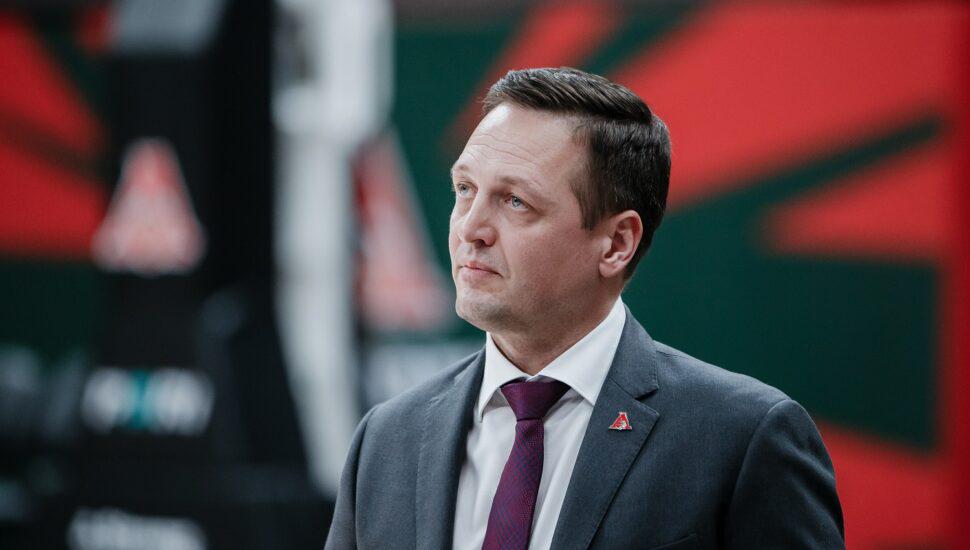
- – How did you get into basketball?
- – Basically, through my family friend who asked me to come because he knew a coach to come for basketball practice. I was about 10 years old; I was in love with football and I wanted to play football. But when I started practicing basketball I immediately fell in love with this sport. I was very lucky in my life that I had amazing coaches always around me. Maybe this was the reason why I fell in love with basketball.
- – How successful were you as a basketball player?
- – In basketball you measure success by a team. I spent like 10 years playing basketball. And again, I was fortunate enough to have good coaches and great players around me. For example, I was playing with Jaka Lakovič who is one of the Top-15 point guards of all time in EuroLeague. I was playing with Rasho Nesterovic who played in the NBA later. So, I can say that we were really successful as a team but individually I was not a good player. I mean they were much better than me others.
- – How did you decide to become a coach?
- – This is also connected to my coaches. Because the older I get they were always probably seeing that my potential is not big in basketball. So, they were always trying to persuade me to start coaching. Because what I did have all my youth, I was a really responsible player who you can count on. All my basketball time when I was playing, I was the captain of every team. Even when I had two years older players in front of me, I was their captain. Maybe, my coaches saw something in me so they encouraged me to become a coach later on.
- – How old were you when you started coaching?
- – I started really slow by coaching because I was not sure to be a coach. But once I started I saw that being a coach you can really help young guys to develop not only as a basketball players but also as a person. It made me seriously think about it when I was 20, 21, 22 years old.
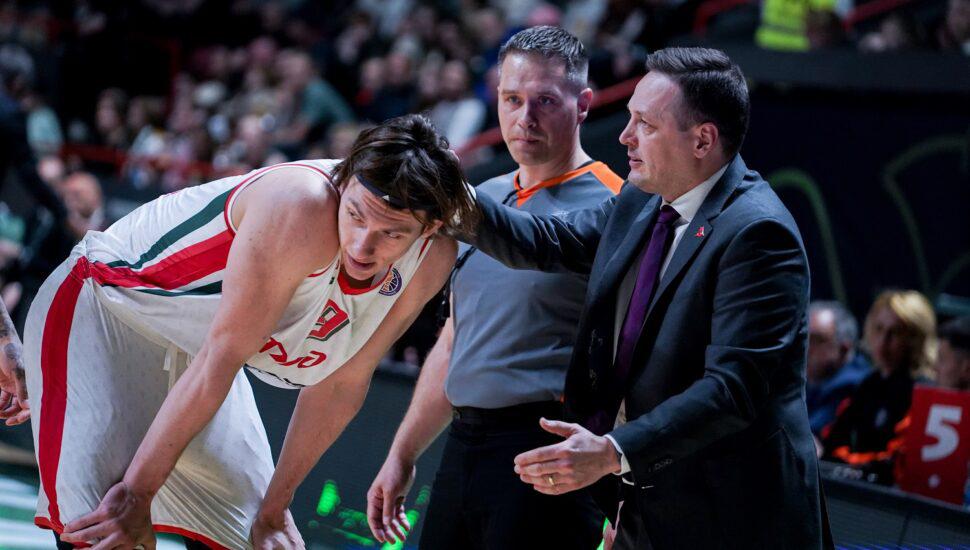
- – How long do you work with Jurica Žuža?
- – I know Jurica Žuža for a very long time. About 20 years ago I met him when he was playing in Panathinaikos and I was visiting practices of Želko Obradović being young coach trying to learn from the best. Our paths crossed again right before I became the head coach in Nimburk in Czech Republic and this was probably a sign.
- – What happened?
- – I met him in his hometown in Croatia close to Zadar and next year I was looking for assistant coach and he was assistant coach to Kazys Maskvitys in Neptunas. I knew that he is a great, reliable, loyal person with great experience as a basketball player and good knowledge of basketball that's why I think he was a jackpot for us to cooperate and create one successful story together.
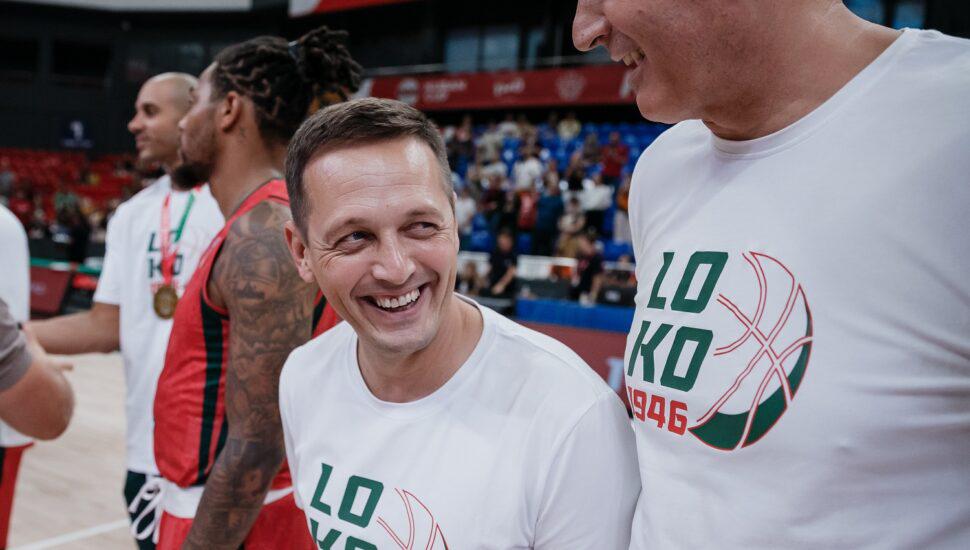
- – Was it hard to decide to become a coach of Loko?
- – To be honest it was hard only because of the situation. Everybody knows there are some political issues in Europe. But I hesitated only because I was a head coach of national team. Once I got the green light from the Basketball federation of Slovenia, we immediately started talking about coming to Loko. Knowing what Loko is, what are the club’s results in the past I didn't hesitate about that for a second.
- – At what moment did you realize the last season that the team is on the right way? Because the start was pretty hard.
- – Of course, it was hard. But this was anticipated because we had really young team and most of the players didn't have this kind of experience being leaders of the team playing in VTB League. So, it was challenging in the beginning but everybody was working hard to improve. I think we were doing a good job trying to figure out what's the best for the team and we saw the team was really growing. We were becoming stronger, playing more consistently. We had some tough losses, really tough. But we always found a way to get stronger out of these losses. We also get some help from imports late in the season. So, in the second part of the season I really started believing in the team especially after finishing the quarter-finals against Nizhny. I wouldn't say it was easy but it was quite a great performance from our players which made us win 3-0 and after that I really started believing in everybody else, also all the players.
- – It's not so easy to believe when you play against CSKA in the semi-finals…
- – For us, the way we played the playoffs we believed that we can beat them but at the same time we were aware of their quality. We were a little bit lucky sometimes but you need to also earn luck. And most importantly we played really good basketball in the semi-finals. Anyway, in all playoff series we played good basketball and we were fortunate enough to beat CSKA. I don't take this for granted. I think it was a big success for us not only to play finals with the young team we have but to beat CSKA without home court advantage was just really big for us.
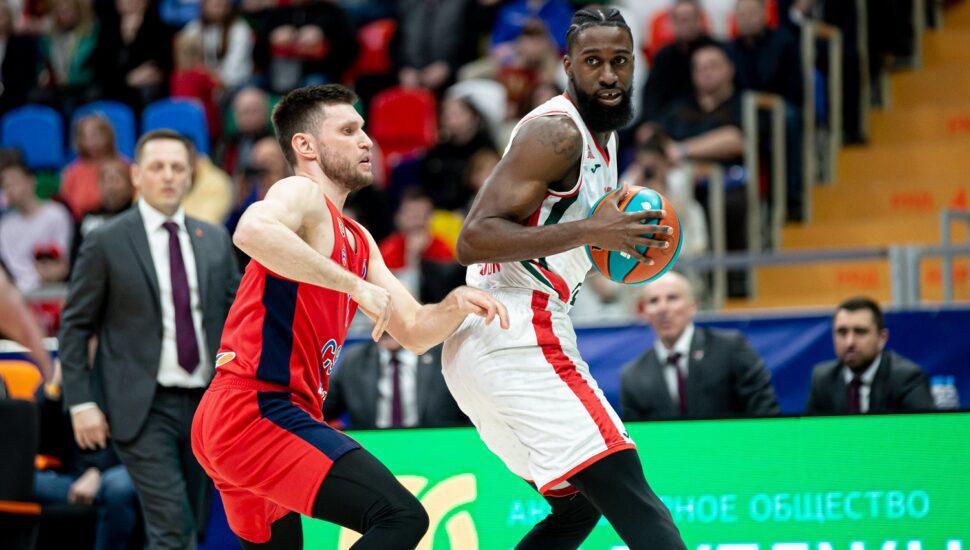
- – Which player improved the most since you came to Loko?
- – For me this is tough to measure because this is the trick part of having a young team. It's not like you have a sprint on 100 meters and then you see improvements by the time. In basketball this is very difficult to measure. That's why it's not easy when you're trying to give a chance to develop young players because there are oscillations. Sometimes they play well, sometimes they play bad. But I believe that everybody, each one of them improved in their own way. All together we improved as a team. And everyone improved as individuals. Because we really take care of this, that guys have correct practices, correct development. We can talk about Vladislav Yemchenko who had a really tough start last year going to the Super League team and coming back. Now he's one of the most important players for us. Also, Kirill Yelatontsev, last year he showed in VTB Youth League that he is developing as a player. There's Andrey Martiuk, there's Sascha Shcherbenev, there's Zahar Vedishchev who was at some point a candidate to be the best sixth player in the league. Everybody is making steps forward. I don't see nobody stepping backwards but it's really difficult to say who has improved the most.
- – How important was it to preserve the whole team between the seasons?
- – It was maybe the most important thing for us because we had a great team. We had good chemistry and I believe that if we continue with the same team we can be only better. That's why we tried, I mean the club’s management, starting with sporting director Viktor Meleschenko and ending of course with the most important person Andrej Vedischev. They really made this happen.
- – Some club presidents give carte blanche to coaches and some are deep inside the life of the team giving advices. Which type of manager is Andrej Vedischev in your opinion?
- – Basketball organization Lokomotiv Kuban has an amazing history. Winning Eurocup, playing Final Four of EuroLeague and ending third. Finishing every year in European competition on the highest possible positions means that the club is doing something right. So, when I came here, I understood what kind of part Andrej has in the team. I don't think he interferes too much with the team. But when he says something, he always makes a point. That's why I really respect him because if there was no Andrej probably there would be no success. He is the mastermind behind everything and that's why I believe that his presence is crucial and I accept him for what he is because this is what makes the team successful.
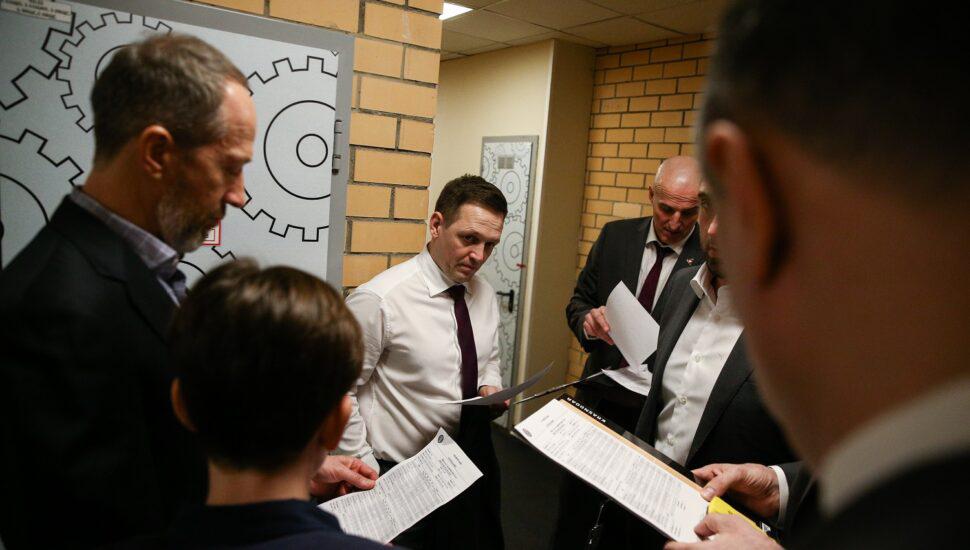
- – Why did Loko started this season not so fine?
- – It depends on which part of the season you call a start of the season. If you talk about the start of the VTB league it was not what we wanted. But we have to go a little bit back before when we had Super Cup. We paid the price of playing the Super Cup a little bit because DeVaughn Akoon-Purcell got injured. We were without Jaylen Barford because he had some things to fix in the United States. We were missing Zakhar Vedischev and we paid the price. We were not full roster. We were tired and traveled a lot – from Moscow to Krasnodar then immediately to Kazan. It influenced our team. So, if you ask me for the reason, this is the reason. I don't want to say this is an excuse. But we can say that it was really challenging for us to manage this part of the season. And we didn't do it in the way we wanted to. But when we had enough time to recover, to practice and to have a full roster then we started playing well.
- – Okaro White said that he’d never seen such a quarter like was the third one in Astana. Have you experienced something like that before?
- – I did, but when I was coaching a team playing against a much better team. I believe that we are at least at the same level with Astana if not a better team. So, this was really a big shock for me. We really performed poorly. We didn't look good on the court and the result was scoring only four points in this quarter. And I think we played without energy, selfish. After that we watched all the game with the team. From first to last second, we analyzed it with the players together and we just said we didn't forget how to play basketball. We just needed to figure out how to play the same way we were playing before the start of the season. And it worked. It clicked to us. We just realized that against Astana it was not the correct way and we can just choose how we want to look on the court. It's our choice, not the choice of opponent or somebody else. It's our choice how we look on the court, how we play. We just need to decide and play. That's how everything turned for us. We just started winning. We just learned from this bad quarter and of course bad game. It's really not easy to play VTB league. Anybody can beat anybody because every team has great coaches and great basketball players. You cannot take any game for granted. Not a single game.
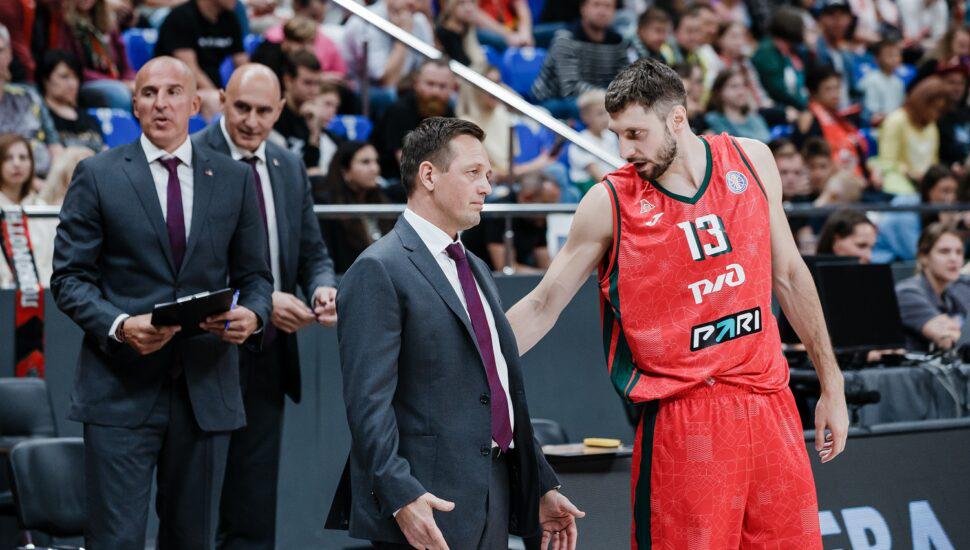
- – Not speaking of Loko, which team and which player surprised you the most this season?
- – I can agree with everybody – it’s Xavier Rathan-Mayes. Even though I knew him. My team already played against him when he was playing for AEK. We knew what qualities he possesses. But that fact he's playing consistently like this is the biggest surprise. Therefore, Yenisei became one of the toughest teams to beat in the league.
- – Which away game was the toughest for you in terms of traveling?
- – For us every trip is tough but the toughest for sure is Krasnoyarsk or Astana because there is also time difference, we need to take into consideration this. I would say these trips if you talk about traveling.
- – Does the way of refereeing differ between Europe and Russia?
- – No, I don't believe so. First of all, big congrats to the VTB United League for what they are doing. For how much they put into improving their referees. If you don't have good referees, you cannot have good basketball. And I believe we have very good basketball in the VTB League. It's one of the strongest leagues in Europe for me right now – if we talk about domestic competitions. I think we can feel it that we have really good officiating, which is very important. If you have players of EuroLeague level, you need to have referees of the same level. I think the league has many good referees and I can see others coming close to this level.
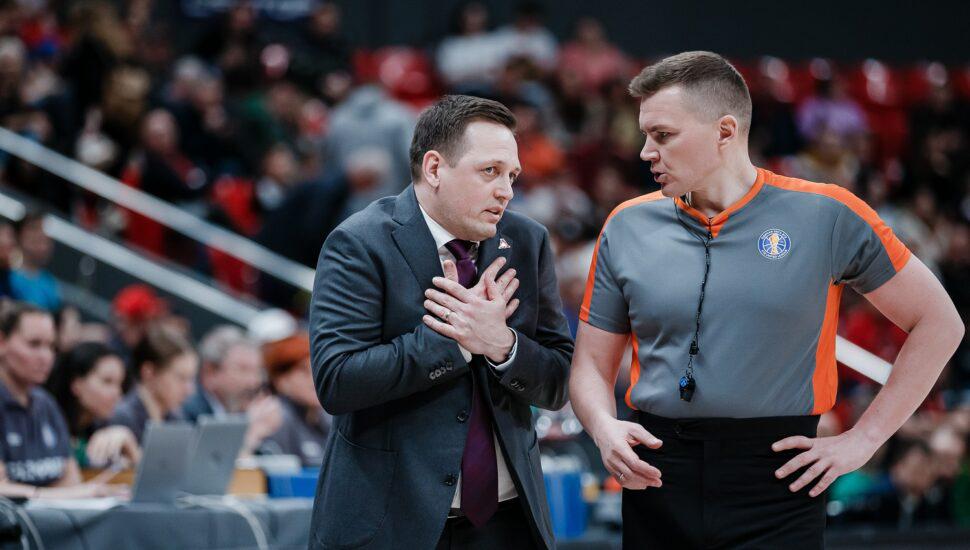
- – You prolonged your contract with Slovenian national team. Did you discuss this with the club?
- – To be honest, I didn't. We talked about this before – when I signed with Loko. I believe if Slovenia is going to be fortunate enough to qualify for the Olympics, it's not going to interfere with the club's calendar. Olympics will be finished around August 10th and this is the time that many teams start their pre-season. So, I didn't discuss. We had some talk, but no, it was nothing serious. For me it's a big honor to be the coach of the national team of my country.
- – What can you say about chances of Slovenia in Olympic qualification? You have to beat several very powerful teams.
- – For sure. But you play for the Olympics. If you want to be among the best, it's going to be challenging. If it was easy, everybody would play in the Olympics. The Olympics is a special tournament. Three years ago, we managed to qualify. For the first time in the history of Slovenia we managed to qualify for the Olympic tournament. Not only did we qualify, I think we played amazing basketball there, in Tokyo. This year I think it's going to be even tougher to get to the Olympic tournament. But everything is possible. Until we have Luka on the team, we always have the highest goals.
- – What is the phenomenon of Luka Dončić? How does he manage to stay on this top for so long?
- – This is not a question for me. I think he's improving every year. I met him on the court for the first time in 2017 when I was the assistant coach to Igor Kokoschkov at the national team. Even then, when he was only 18 years old, you could see that he's special. Everybody knew that he's going to be good, I don't believe anybody dreamt about how really good he became. He's just somebody with a high basketball IQ, with amazing basketball skills, with size and strength. When you combine everything, that's what makes him special. And above that, he's a great person, a great heart. He has everything – not only to make an impact in the NBA, but he's one of a kind.
- – Is he ready to become an MVP in the NBA?
- – Of course. He proved this many times. But being an MVP, it's not only about him, it's about the whole team. Because I believe that if you want to become an MVP, it's not enough that you play good. Your team needs to win. And I think this season they're on a great path. Personally, I had the privilege to talk to Jason Kidd and talk about the team and everything. And knowing that he has amazing coaching staff around him, I just believe that maybe if not this year, which I believe it can happen, but in the next two, three years Dallas Stars is going to win and Luka is going to be an MVP. I think this has a high probability.
- – Why do players from former Yugoslavia better fit in the NBA than Russian and post-Soviet players?
- – It's difficult to say why, because to analyze this, you need to go deeper into why it's like this. But we have to understand that Russians also have some amazing players in the NBA: Kirilenko, Shwed, Mozgov. I cannot say what Russia has or doesn't have. I can speak only of ex-Yugoslavia. We have really great basketball school, great coaches, pretty good system there. So, the players coming from these parts of Europe are really skilled. They know how to hide their weaknesses. They are not super-athletic, like African-American players. But they have a great skill set, which is connected with the coaches they had when they were younger. So, this is one of the things, but I cannot speak about Russia.
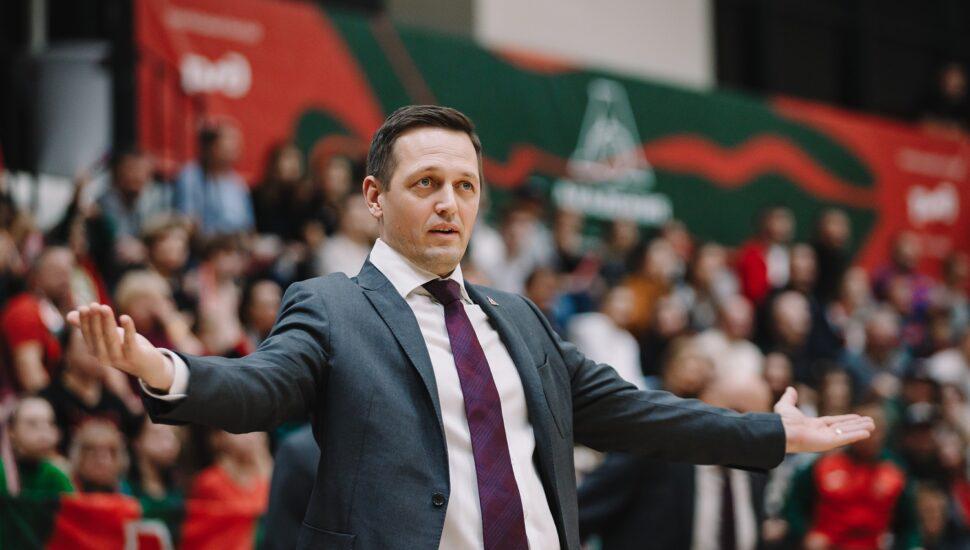
- – Now Loko has a new training facility, where lots of players as young as 12 years old exercise and live. When will it give real impact?
- – It's already giving a big impact, I believe. First of all, it's an amazing facility, built in the best possible way. We have everything there. Players just need to work hard to improve, to get better. Having this facility is the first step of having a team that can rely on the domestic players. And I think Loko is proof of this. We, coaches and players, we just need to take advantage of this.
- – Do you think you could work in NBA, like Igor Kokoshkov does?
- – I believe that Europe has great basketball mind in terms of coaches, not only players. Because all these players were taught by somebody. We have amazing coaches in EuroLeague, EuroCup, all over Europe. I think they're aware in NBA about this, that we have really good knowledge of basketball here/ But US coaches are also great. What they do there is just amazing. So, I believe I could work here, but I don't think this is realistic.
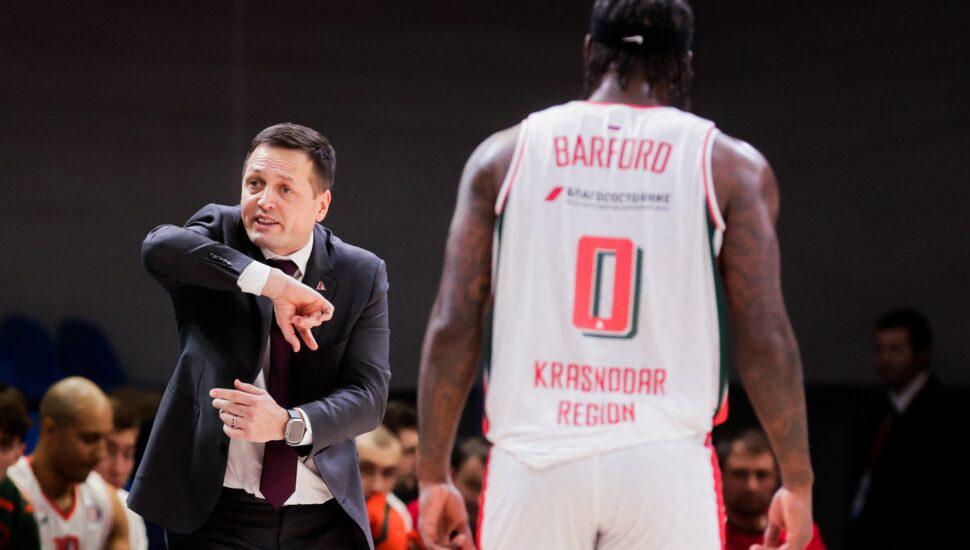
- – What do you think is your biggest strength as a coach?
- – I was really fortunate enough to be working as a player and an assistant coach with really great coaches from whom I learned a lot. I had been working with coaches who are amazing with the tactics. I have worked with coaches who are amazing motivators or coaches who know how to pull out the maximum of each player. The ones who are amazing defensive coaches. For me it was a good experience to learn and take from each one of them the best part. So by this I mean that then it's difficult for me to talk about myself, what is the biggest strength for me. What I like is always to have personal approach with the players, to understand them and their expectations, and to explain them what they can give to the team or what is expected from them. When you can be honest with them, when they understand their roles and what they need to do, then you can pull out this maximum from them. One of the things I really like is to adapt to the players we have. I just don't want to be stubborn and say “no, you need to do this and that”. Obviously, the players are not really comfortable in doing this. I just want them to do what they are comfortable in. And this is the toughest part, how to create the atmosphere on the team that players could perform in the best possible way. So, I think this is one of the things that I really like to explore with the teams. To make the team, because I believe that if the player can perform in the best possible way, it means that the team is going to be stronger. And then when the team is strong you can do many good things.
- – And the final question. What should Loko do to make this one more step up?
- – Okay, if there was a simple solution, everybody would be the champion. What I learned from my experience, is that there is always a process. By my experience I didn't see that something happens overnight. So, I think we are on a good path right now because of the number of Russian players we have, of the quality they possess, and especially of how much they can improve. I believe that one of the most important things is that you need to have a strong base of Russian players. And then look, there is always a team on the other side who also wants to win. So, you can do everything correct, but on the other side there is a team that is playing better, also doing everything in the correct way, but they are better than you. Or opposite, of course. That's why sports, and especially basketball and sports is amazing for me. Because there are no guarantees. You cannot take any game, any practice, anything you do for granted. You just need to work hard and believe in each other. So, we need to have a circle of trust. It needs to be very close and we need to trust each other. And when we trust each other – players to coaches, coaches to coaches, players to players – when we have this kind of trust and quality, of course, then also you can go to the ultimate step of winning the championship.
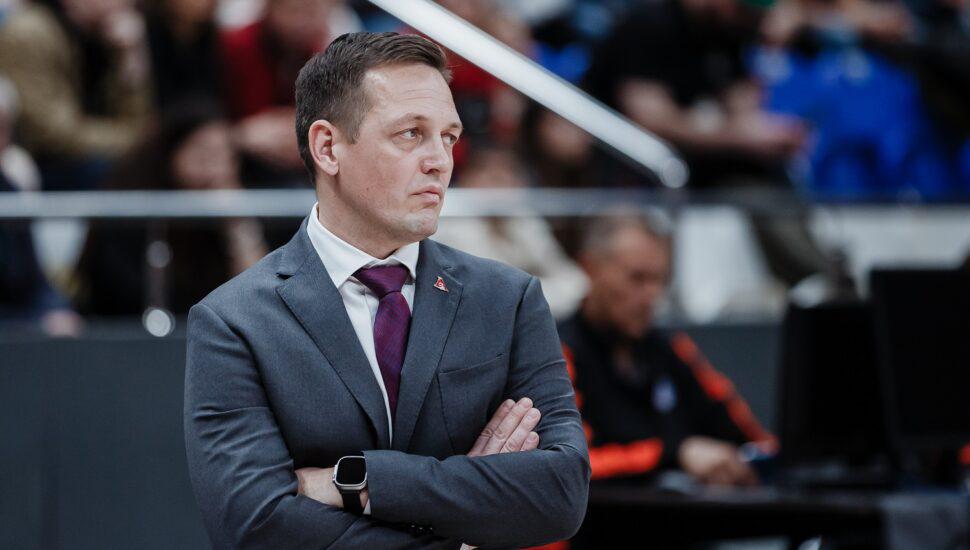
Share with Friends: